 This will be a year of celebration for the Faculty of Law at McGill, as we kick off the tenth anniversary of “the McGill Program,” our unique, bilingual, integrated B.C.L./LL.B. program. The year 2012 also marks the centennial of the Law Students’ Association and the 60th anniversary of the McGill Law Journal.
This will be a year of celebration for the Faculty of Law at McGill, as we kick off the tenth anniversary of “the McGill Program,” our unique, bilingual, integrated B.C.L./LL.B. program. The year 2012 also marks the centennial of the Law Students’ Association and the 60th anniversary of the McGill Law Journal.
Follow Focus online each month as we highlight these important milestones at the Faculty. Stay tuned for features on the upcoming Stateless Law conference happening in the Faculty at the end of September, and our first-ever Law Homecoming in October.
This month, we catch up with ten of the first graduates of the McGill Program, ten years later. Indeed, almost a decade has passed since the members of the first “McGill Program” cohort graduated from the Faculty. Nous voulions savoir comment ce programme exceptionnel a préparé nos diplômés pour une carrière hors du commun, que ce soit en pratique privée, dans la fonction publique ou même au-delà du monde juridique.
And so, FOCUS asked ten original grads to reflect on how their career path was inspired by their bilingual training in the common and civil law traditions, in a legal education program that remains unique among law schools. We received more great responses from the first graduates of the McGill Program than we could squeeze into the printed pages of this year’s Focus magazine but we promised to carry the full story in Focus online.
Shantona Chaudhury, BCL/LLB 2005
Associate at Pape Barristers, Toronto
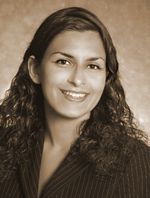 Q. Has your career taken you on any twists and turns?
Q. Has your career taken you on any twists and turns?
I took a year ‘off’ law school to do the Parliamentary internship. After finishing my degree, I wrote the Quebec bar, interned at the ICTR in Tanzania, wrote the Ontario Bar, clerked for Justice Binnie, went to England on the Fox Scholarship, got a second BCL (the poorly named Oxford LLM) and finally got a real job. I think this path reflects a healthy curiosity about the world; my boss (a brilliant senior appellate litigator who wears multi-coloured, cupcake-patterned socks to court and writes all his emails in haiku) says my resumé smacks of pathological indecisiveness and I’m lucky he hired me.
Q. Any personal interests you’d like to share?
Too many interests and not enough time to pursue them! Last year I acted in a play with a cast of fellow Toronto lawyers, which brought me back to my days with Actus Reus.
Q. Most memorable learning moment for you at the Faculty?
Studying law at McGill wasn’t just about learning material; it was about critical thinking, both inside and outside the classroom. McGill is different, and fearless in its willingness to be so. Where else would the prescribed textbook for the first-year tort course be The Wrongs of Tort? My courses in evidence and procedure were a prime example. Professor Bachand and Justice Healy turned what might otherwise have been dry material into foundational, eye-opening lessons that continue to influence the way I think about law.
Q. How do you think the McGill Program helped prepare you for your career?
In the past few years, I’ve had the chance to observe some fantastic lawyers, judges, and professors in action—from what I’ve seen, what separates the best from the rest is the ability to think creatively. The McGill Program instills this in its students. From Day One, we learn that different legal systems approach identical problems in very different ways. This makes ‘thinking outside the box’ come naturally to McGill-trained lawyers. The reflex is to go beyond what is presented, to examine problem from all possible angles and then try and find even more angles to consider.
Q. How does your common and civil law training meet your everyday practice?
I practice common law exclusively, but I sometimes find it helpful to consider the civil law perspective on the issues I encounter in my practice (especially in tort law). My civil law (and French language) training is also useful because I can read, understand and refer to Quebec cases; Quebec jurisprudence is an under-used resource outside the province.
Q. Do you have any other words of wisdom about the McGill Program?
One word: Coffeehouse. For me, the two pillars of the McGill Faculty of Law—those that set it apart from any other law faculty I have ever encountered—are transsystemic learning and coffeehouse. I’m only half-kidding when I say the two were equally important in my legal education!
Jérôme Lussier, BCL/LLB 2003
Journaliste et blogueur, à Montréal. [Depuis cette entrevue, Jérôme a accepté le poste de directeur des communications pour la Coalition Avenir Québec. –Ed.]
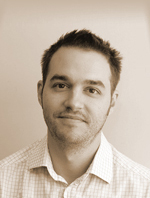 Q. Quels détours intéressants a pris votre carrière?
Q. Quels détours intéressants a pris votre carrière?
Après cinq ans en droit des affaires et litige commercial dans des cabinets de New York et de Montréal, je suis revenu à mes premières amours: médias et affaires publiques.
Q. Quel fut le moment le plus mémorable pour vous à la Faculté?
Assister aux cours d’Yves-Marie Morissette (maintenant J.C.A.) et de Rod Macdonald, et réaliser qu’il me faudrait sans doute 10 ans pour intégrer toute la matière à réflexion. Je compte avoir tout compris d’ici le 1er septembre 2013.
Q. Comment le programme de droit de McGill vous a-t-il préparé pour votre carrière?
Le programme de McGill prépare de manière exceptionnelle à la pensée structurée et à la réflexion critique – des facultés essentielles pour quiconque s’intéresse aux questions sociales et politiques. Le programme – même les cours de procédure! — aborde le droit comme objet d’étude critique et théorique, et non comme un code à apprendre et mémoriser. La formation combinée en droit civil et en common law développe aussi le réflexe de considérer l’existence de plusieurs approches et solutions aux enjeux d’affaires publiques. L’ouverture et l’agilité intellectuelle qu’on acquiert à McGill nous suivent toute notre vie et dans tous les domaines.
Q. Comment le droit civil et la common law s’intègrent-ils à votre pratique?
Dans mes années passées comme avocat à New York, je travaillais pour un cabinet international basé en Europe. L’interaction entre les juridictions de droit civil et de common law était fréquente, et j’étais un des rares avocats du bureau (les autres venaient aussi de McGill) à maîtriser les deux traditions. Comme chroniqueur, la connaissance des traditions et des perspectives françaises et britanniques sert également d’outil d’analyse utile pour quiconque s’intéresse à la politique québécoise et canadienne.
Horia Bundaru, BCL/LLB 2005
Avocat en litiges chez Norton Rose Canada à Montréal
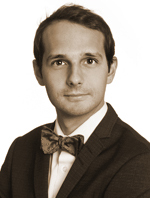 Q. Quel fut le moment le plus mémorable pour vous à la Faculté?
Q. Quel fut le moment le plus mémorable pour vous à la Faculté?
Les moments les plus mémorables ont sans doute été mon passage au Centre de recherche en droit privé et comparé du Québec et le travail que j’y ai effectué aux côtés des nombreux chercheurs, ainsi que mon implication, d’abord à titre de participant, puis de responsable, au sein du Concours Charles-Rousseau.
Q. Comment le programme de droit de McGill vous a-t-il préparé pour votre carrière?
Ce fut l’occasion d’une ouverture culturelle, puis d’une ouverture de pensée, qui, j’aime à le croire, ont fait de moi un citoyen et un avocat mieux préparé à appréhender la société actuelle dans son inexorable évolution.
Q. Comment le droit civil et la common law s’intègrent-ils à votre pratique?
Je suis appelé, sur une base régulière, à représenter les intérêts de clients dans un contexte juridique qui, soit dépasse la frontière du droit privé, donc civil, soit appelle à une compréhension de la logique intrinsèque aux deux traditions de droit et de leurs interrelations. McGill m’a donné les outils nécessaires pour évoluer dans un tel environnement et pour le comprendre.
Q. Le mot de la fin sur le programme de droit de McGill?
Je ne sais si l’enthousiasme peut être sage ou si la sagesse peut être enthousiaste, mais je suis totalement enthousiaste quant au programme de McGill! À la discipline du droit, il mélange avec adresse d’autres disciplines, comme la philosophie, l’histoire, la sociologie, voire la linguistique.
Jean-Frédérick Ménard, BCL/LLB 2005
Doctorant étudiant le droit et l’éthique des soins pédiatriques au University College London, en Grande-Bretagne
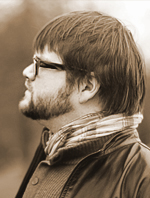 Q. Quels détours intéressants a pris votre carrière?
Q. Quels détours intéressants a pris votre carrière?
Après un stage du Barreau, j’ai pratiqué en tant qu’avocat-fiscaliste au sein d’un cabinet pan-canadien, pour ensuite devenir éthicien clinique à l’Hôpital pour enfants de Montréal. J’ai toujours eu envie de me consacrer à la recherche et à l’enseignement, et cette expérience en milieu clinique m’a enfin permis de cibler mes études supérieures.
Q. Quel fut le moment le plus mémorable pour vous à la Faculté?
L’intensité des travaux d’équipe dans les cours du prof. Macdonald, avec leurs interminables débats sur le forum électronique de discussion WebCT, représente encore pour moi un étalon d’immersion et de communauté intellectuelle extraordinaire.
Q. Comment le programme de droit de McGill vous a-t-il préparé pour votre carrière?
Le programme de McGill m’a permis d’apprendre à apprendre et m’a donné la confiance d’apprivoiser ce que je ne connais pas. De là, les possibilités sont à peu près infinies, qu’il s’agisse d’un nouveau domaine du droit ou d’une nouvelle tradition.
Q. Comment le droit civil et la common law s’intègrent-ils à votre pratique?
Dans un hôpital québécois, c’est surtout le droit privé québécois et les chartes qui régissent les relations entre patients et professionnels de la santé. Ainsi, avec un stagiaire américain ou un médecin égyptien, je peux amorcer une conversation et faire ressortir les normes juridiques et éthiques pertinentes. De même, devant les questions que soulèvent les progrès fulgurants de la médecine, il est avantageux de pouvoir reconnaître que les solutions adoptées par la common law et le droit civil peuvent être différentes.
Q. Le mot de la fin sur le programme de droit de McGill?
Grâce au programme de McGill, je me sens à l’aise d’approfondir n’importe quelle question et j’ai l’impression d’être en mesure de trouver le chemin le plus court entre deux points (de droit). Plus j’acquiers d’expérience pratique, plus je crois que l’on ne saisit pas complètement une question juridique si l’on ne peut pas la considérer sous l’angle d’une autre juridiction ou d’une autre tradition.
Dennis Galiatsatos, BCL/LLB 2004
Crown Prosecutor, special cases trial team & alternate for the appeals team, Montreal.
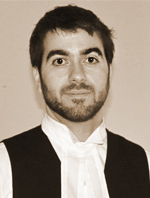 Dennis has represented the Crown in criminal prosecutions at all three levels of government; he has also represented the Prosecution in appeal files before the Quebec Court of Appeal, the Superior Court and the Supreme Court of Canada.
Dennis has represented the Crown in criminal prosecutions at all three levels of government; he has also represented the Prosecution in appeal files before the Quebec Court of Appeal, the Superior Court and the Supreme Court of Canada.
Q. Most memorable learning moment for you at the Faculty?
My Civil Litigation Workshop course, given by Maître James Woods at the time. The entire semester was a preparation of a mock trial, which ended up taking place on a Saturday at the Montreal Courthouse, in a real courtroom, with a real judge. Unforgettable experience.
Q. How do you think the McGill Program helped prepare you for your career?
I went to elementary and high-school in French, so I wanted to use university to improve my written English. This is a huge advantage, as criminal cases always proceed in the language of the accused and, in Montreal, few criminal litigators have a good enough handle on legal terminology in English. In my time, however, the criminal law program did not have enough courses, nor enough teachers. But I greatly appreciated the tireless efforts of Professors Healy and Sklar, who carried the program on their shoulders. [Dennis has since volunteered to mentor students via a criminal law shadowing program organized by the Criminal Law McGill/Droit Criminel McGill student group and the Faculty’s career development office. –Ed.]
Alexandra Popovici, BCL/LLB 2005
Doctorante en droit privé à l’Université Laval et chargée de cours à la Faculté de droit de McGill
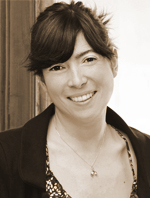 Q. Votre carrière a-t-elle pris des détours intéressants?
Q. Votre carrière a-t-elle pris des détours intéressants?
À part deux bébés, quelques voyages en Ontario et des séjours à l’étranger, le plan d’attaque a été respecté.
Q. Quel fut le moment le plus mémorable pour vous à la Faculté?
Dès ma première année de droit, j’ai eu la chance extraordinaire de travailler au Centre de recherche en droit privé et comparé du Québec, aujourd’hui nommé le Centre Paul-André Crépeau de droit privé et comparé. Ce Centre, unique en Amérique, a pour mission de développer et de promouvoir la tradition civiliste canadienne dans une perspective comparatiste et linguistique. J’ai toujours gardé des liens avec le Centre et j’y suis chercheure encore aujourd’hui. En fait, parmi mes nombreux projets scientifiques, je suis responsable avec le professeur Lionel Smith d’un projet prodigieux ayant comme objectif de faire rayonner l’épistémologie transsystémique : le McGill Companion to Law.
Q. Comment le droit civil et la common law s’intègrent-ils à votre pratique?
Enseigner le droit privé à McGill demande nécessairement des connaissances bijuridiques. Paradoxalement, j’enseigne des cours de droit civil pur et dur. Ma méthode d’enseignement, qui s’ancre dans une tradition juridique unique, n’en est pas moins transsystémique.
Marie-Pierre Duchaine, BCL/LLB 2004
Notaire, associée au sein du cabinet multidisciplinaire Duchaine & Associés, Montréal
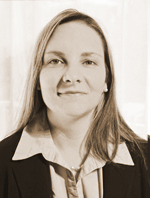 Q. Quels détours intéressants a pris votre carrière?
Q. Quels détours intéressants a pris votre carrière?
J’ai eu l’occasion de terminer une maîtrise en droit en 2010 à l’Université de Montréal. De plus, j’ai été chargée de cours à l’Université de Sherbrooke et je suis toujours chargée de cours à l’Université de Montréal. Je donne également des conférences relativement au droit successoral et aux matières non-contentieuses devant différents auditoires : résidences de personnes âgées, compagnies d’assurance, etc.
Q. Avez-vous des passe-temps inattendus?
Mes trois enfants d’âge préscolaire constituent mon principal passe-temps!
Q. Quel fut le moment le plus mémorable pour vous à la Faculté?
En droit de la famille avec le professeur Kasirer, lorsqu’il traitait du droit naturel, de l’attachement de l’enfant à la mère et de l’obligation alimentaire. C’est un exposé qui est resté gravé en moi et qui le restera à jamais! Aller au-delà de la lettre de la Loi fut très bénéfique pédagogiquement.
Q. Comment le programme de droit de McGill vous a-t-il préparé pour votre carrière?
En ouvrant grandement mes horizons et en formant mon jugement lorsqu’il est question de mettre deux idées en relief, en parallèle. Cela m’aide grandement dans ma carrière de chargée de cours à l’Université.
Q. Le mot de la fin sur le programme de droit de McGill?
Ce programme structure notre pensée d’une façon fort différente des juristes qui n’ont pas fréquenté McGill. C’est une pensée approfondie, et non superficielle. D’ailleurs, l’on peut facilement reconnaître dans une salle de classe des étudiants ayant fréquenté la Faculté de droit de l’Université McGill et ce, par la qualité de leur raisonnement!
Jeff Feiner, BCL/LLB 2004
Litigation Associate at McCarthy Tétrault LLP, Toronto
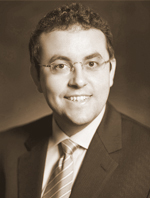 Q. Has your career taken you on any twists and turns?
Q. Has your career taken you on any twists and turns?
Several. At the beginning of my career, I was fortunate to participate in a two-month secondment at the Ontario Securities Commission, where I met my wife. So that was fruitful. In my litigation career, I have had the pleasure of acting in cases both big and small with facts that would rival those that we read about in the casebooks our professors prepared for us. Alas, I have not yet had any cases involving stevedores.
Q. Most memorable learning moment for you at the Faculty?
It is hard to pick just one. It is also difficult to pinpoint whether the learning moment took place inside or outside of the classroom. One memorable moment took place during a tryout for a moot, when it became clear to me that the “judge” was feigning ignorance to throw me off my game. It was then that I learned the importance of not only knowing your argument but having the confidence to defend it. I also recall another powerful learning moment one Valentine’s Day when I dressed up in a powder blue tuxedo (it was a rental, I swear) and delivered singing telegrams in some classrooms. It was at that moment that I learned that I had no future career in singing (or fashion).
Q. How do you think the McGill Program helped prepare you for your career?
By learning multiple systems, and their similarities and differences, you learn how to step outside of the box that is “the law”. As an advocate, this helps get to the heart of the truly important matters in issue and present my case in the most persuasive way.
Q. How does your common and civil law training meet your everyday practice?
Nearly ten years later, I would have to say that the critical thinking and creativity that was expected from every student and engendered in McGill’s program helped build a foundation for my development as a lawyer. It is surprising how frequently civil law concepts arise in my practice in a common law jurisdiction, especially in cases involving other jurisdictions. It is helpful to have currency with civil law concepts.
Q. Do you have any other words of wisdom about the McGill Program?
Some of my greatest teachers were those who taught in the Law Faculty. I was always grateful for the fact that the professors were not afraid of injecting a little humour into their classes. The magic of the McGill program is the multifaceted approach to learning, which extends outside of the classroom – it even spilled out into our weekly Thursday afternoon Coffee Houses.
Jess Salomon, BCL/LLB 2004
Stand-up comic and comedy writer, Montreal
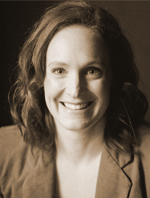 Q. Has your career taken you on any twists and turns?
Q. Has your career taken you on any twists and turns?
My legal career was fairly consistent. I went from the Department of Justice to The Hague (ICTY). I got to work in exactly the area of law I had gone to law school to practice – international criminal and human rights law.I managed to enjoy many a Coffeehouse while avoiding billing hours: One of my great career successes. And then I careened of a metaphorical cliff, leaving my post at the UN to pursue comedy, where “killing” is a really positive thing.
Q. Most memorable learning moment for you at the Faculty?
Professor Scott’s Constitutional Law class was just generally memorable. Also, taking international humanitarian law with Professor Provost and realizing I was going to spend my free semester in The Hague over my original plan which was: Ski bum. And thinking, wow I must really be into this.
Q. How did McGill Program helped prepare you for your career?
There were many times at the ICTY where we’d have to look to various sources of law and different legal systems for guidance. Having being exposed to two different systems from day one helped me to think comparatively and generally made me more open to different approaches, which is very useful in an international environment. That said, Common Law is obviously the best, let’s be honest.
Q. How does your common and civil law training meet your everyday practice?
My transsystemic training helped me get hired at the UN and being a war crimes lawyer turned stand-up comic is the main reason I get any press for my stand-up comedy. So yeah, it helps me a little every day. When I make jokes about property in English I use the term chattel. When I perform for a French audience I’ll say movable property. As a result, the 30 minutes of material I have on property kills with both Anglo and Quebecois audiences.
Q. Do you have any other words of wisdom about the McGill Program?
In life, always ask yourself: Why get only one of something when you can get two? Don’t be afraid to careen off a cliff, metaphorically. You have two degrees; you should be fine.
Audrey Boctor, BCL/LLB 2005
Litigator at Irving Mitchell Kalichman, Montreal
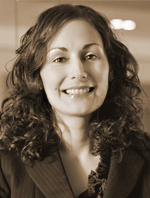 Q. Has your career taken you on any twists and turns?
Q. Has your career taken you on any twists and turns?
After finishing classes in December 2004, I spent 4 months as an intern at the International Criminal Tribunal for Rwanda, a year in Ottawa as a law clerk to Chief Justice McLachlin, then four years in New York (including two years as a corporate attorney focusing on broker-dealer regulation and derivatives) before coming back to Montreal to practice litigation at IMK in 2010.
Q. Most memorable learning moment for you at the Faculty?
The moment that will always stand out for me is that first day of school when the Dean gave his welcome speech and went through the accomplishments of all the students in the class. At that point you knew it was going to be an amazing 3.5 years.
Q. How do you think the McGill Program helped prepare you for your career?
The McGill Program taught me to think creatively about the law. This has helped me in everything I’ve done since.
Q. How does your common and civil law training meet your everyday practice?
Learning the law through a comparative approach forces you to think about the rationale behind the law and not just its application. This is something I always try to keep in mind, whether in submissions to the court or in talking to clients.
